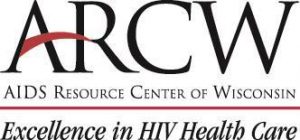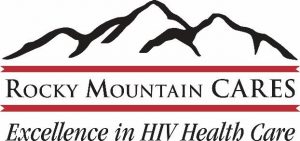
Community and organizational leaders hail merger as beneficial to HIV prevention, care and treatment in Colorado and Wisconsin
DENVER, CO and MILWAUKEE, WIS… Building upon Denver’s strong response to the HIV/AIDS epidemic, Rocky Mountain CARES (RMC) and the AIDS Resource Center of Wisconsin (ARCW) are announcing their merger following the unanimous votes of both organizations’ respective boards of directors. People living with HIV, leaders of both organizations, and public officials in both communities are hailing the merger as beneficial to HIV prevention, care and treatment efforts in Colorado and Wisconsin.
“The Denver Department of Environmental Health applauds the merger of the AIDS Resource Center of Wisconsin (ARCW) with Rocky Mountain CARES, “ said Ann Cecchine-Williams, Deputy Director, Denver Department of Environmental Health. “The merger will allow Rocky Mountain CARES to continue to fulfill their critical mission of providing centralized and comprehensive medical care management, pharmacy, support services, rich education and research resources to those affected by and infected with HIV/AIDS.”
The merged organization, which will continue to operate in Denver under the name Rocky Mountain CARES and in Wisconsin as the AIDS Resource Center of Wisconsin, will prioritize the opening of an HIV Medical Home, marking an evolution in the role of RMC in fight against AIDS that includes the organization’s move into offering direct clinical care for HIV patients. ARCW currently operates the only HIV Medial Home approved by the US Centers for Medicare and Medicaid Services. The HIV Medical Home is an innovative model of care that integrates medical, dental and mental health care; pharmacy; social services and care management into one seamless organization in one location.
“When we started speaking with ARCW about increasing the services we offer at RMC more than 18 months ago, I knew we had made the right decision,” said Shannon Southhall who has served as Executive Director of RMC for the past eight years. “This merger will mean more people living with and at-risk for HIV in Denver will receive the health care they need to keep, protect or regain their health. On
behalf of everyone at RMC, I am excited about what our organizations will accomplish moving forward together.”
“Denver and RMC are tremendous leaders in the fight against AIDS,” said ARCW President and Chief Executive Officer Michael Gifford. “Our merger will help build upon the incredible work already well underway by bringing the successful HIV Medical Home model of care to Denver, helping to enhance and increase access to care, attract and retain more patients who are not currently in care or have fallen out of care, and ultimately and most importantly, help people with HIV live long, healthy lives.”
Building upon the successful case management, testing, social services and pharmacy programs already offered, RMC will begin to offer specialty and primary medical care, mental and behavioral health care, legal services and open a food pantry to HIV patients in the coming months. Drs. Ken Greenberg and John Hammer, two leading physicians currently treating HIV patients in Denver, will serve as the two medical providers in the new clinic.
“As a physician, I know that often times some of the biggest barriers HIV patients face to achieving health are related to unaddressed mental and behavioral health concerns, not having enough nutritious food, and not having a safe place to live,” said Dr. Ken Greenberg. Greenberg, who is currently in private practice with Denver Infectious Disease Consultants (DIDC), will join RMC as Medical Director. DIDC has more than 30 years’ experience providing care to HIV patients. “The HIV Medical Home is critical to making sure patients have all of their needs met so that they can focus on successfully managing their health.”
The new HIV Medical Home will also offer pre-exposure prophylaxis (PrEP) to HIV-negative individuals who are at high risk for contracting the virus. PrEP is the newest and most effective bio-medical HIV prevention intervention available, with studies indicating it is more than 90% effective at preventing HIV transmission when used as directed. When PrEP is combined with condom use and other safer sex practices, the risk for HIV transmission is even lower.
Current RMC staff will continue to be employed by the organization post-merger. Additionally, new staff including medical professionals, clinical pharmacists, mental health therapists, case managers, attorneys, and food pantry positions will be hired in the future.
RMC and ARCW will operate as one organization serving people in both Colorado and Wisconsin. Leadership of the merged organization will retain Denver representation, with four members of the RMC Board of Directors joining the ARCW Board of Directors.
Support for due diligence and merger evaluation was supported by a grant from the AIDS United Sector Transformation Initiative, made possible by generous cross-industry support from Johnson & Johnson and Bristol-Myers Squibb.
###
ABOUT ARCW ARCW is home to the ARCW Medical Center – Wisconsin’s largest and fastest growing HIV health care system. Through its nationally renowned HIV Medical Home, including integrated medical, dental and mental health clinics along with its pharmacy and dedicated social services including food pantries, a legal program, housing support and social work case management, more than 4,000 HIV patients in
Wisconsin receive the health care and social services they need for long-term survival with HIV disease from ARCW.
ARCW is also a leading provider of prevention and testing services for people most at-risk for HIV, hepatitis C, sexually transmitted infections, and opioid overdose, delivering more than 160,000 interventions annually.
ABOUT AIDS UNITED Created by a merger between the National AIDS Fund and AIDS Action in late 2010, AIDS United’s mission is to end the AIDS epidemic in the United States, through strategic grantmaking, capacity building, formative research and policy. AIDS United works to ensure access to life-saving HIV/AIDS care and prevention services and to advance sound HIV/AIDS policy for U.S. populations and communities most impacted by the epidemic. To date, our strategic grant-making initiatives have directly funded more than $85.8 million to local communities, and have leveraged more than $110 million in additional investments for programs that include, but are not limited to, HIV prevention, access to care, capacity building, harm reduction and advocacy.







